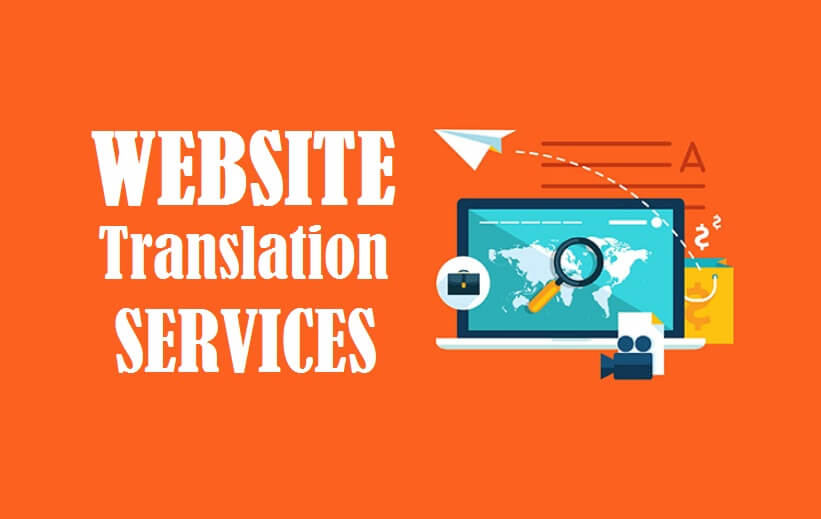With businesses getting global, the need to translate various documents is escalating. And one such multiple documents is finance-related papers, whose translation must be done accurately by the translation agency. There is no scope for errors in financial document translation because it can lead to considerable losses to the company and the client, even if a single word is translated wrong. With numerous complex terminologies, financial translation is a tough nut to crack. Due to its complexities, financial translation becomes a field of Subject Matter Experts (SMEs), i.e. the translator must be a finance expert. Along with mastery of the subject matter, the professional must be highly proficient in the initial and the target language.
Let’s read further to understand how crucial financial translation is to navigate complex terminology for the global market.
Need for financial translation to tackle the Global Market
To set foot in the global market, it is essential to be fully prepared. Tackling markets beyond borders will become smoother with accurate translation of your financial documents because it will help your business to cross multiple barriers between you and the success of your business. Let’s understand the need for financial translation to tackle the Global Market in depth.
- Language Gap
- Legal Requirements
- Financial Relations
- Market analysis and research
- Advertising and Financial Marketing
- Acquisitions and Mergers
Language Gap
There are many different language communities in the worldwide market. Financial translation enables firms to communicate their financial information accurately and efficiently to worldwide audiences while helping to overcome language hurdles. It ensures that financial papers, including annual reports, financial statements, investment proposals, and market analyses, are faithfully translated into the target language so that clients, stakeholders, and investors may make educated choices.
Legal Requirements
Each nation has its own set of accounting laws and reporting requirements. Companies must adhere to regional financial and regulatory restrictions when entering new markets. Financial translation ensures that financial documents are correctly translated to meet compliance standards and local laws. It assists companies in navigating intricate regulatory frameworks and averting any legal problems.
Financial Relations
International markets draw investors from various nations. By translating investment information, prospectuses, and financial presentations into potential investors’ native languages, financial translation makes it easier to communicate with them effectively. This boosts the likelihood of bringing in foreign investment and fosters trust and openness.
Market analysis and research
Businesses need to do in-depth market research and analysis in order to expand internationally or into new markets. Thanks to financial translation, companies may obtain and comprehend financial information, market reports, and economic indicators from many nations. Such data can be accurately translated to aid in seeing market trends, assessing risks and opportunities, and making wise business decisions.
Advertising and Financial Marketing
Localization and translation are crucial when promoting financial products or services in international markets. By translating marketing materials, brochures, websites, and advertising campaigns, it is possible to ensure the target audience is reached and the intended message is accurately communicated. Financial translation enables successful communication and engagement with potential customers by allowing marketing plans to be adjusted to cultural quirks and regional preferences.
Acquisitions and Mergers
Mergers and acquisitions are popular corporate expansion methods on the global market. Financial translation plays a crucial part in such transactions by accurately translating financial due diligence reports, legal agreements, valuation documents, and other financial information. This aids in understanding the financial ramifications and the ability to make wise decisions for all parties involved in the transaction.
Hurdles in accurate financial translation
Achieving top-notch quality translated financial documents can be complex, as the translator must have expertise in both finance and translation. Companies can face some hurdles while getting their translation done. Studying the limitations and the need for financial translation is crucial for an accurate financial translation.
Complex Terminology
Specialized vocabulary in financial documents may need more straightforward translations in other languages. To effectively portray the desired meaning, translators must thoroughly understand financial concepts, accounting principles, and industry-specific vocabulary. Finding exact translations for tricky financial words can be challenging and requires knowledge of finance and translation.
Formatting differences
In addition to how numbers are written, fundamental formatting variations in financial documents can increase the likelihood of errors. For instance, European bank statements and balance sheets may be printed or organized differently from their American counterparts. Translators need to be aware of this subtle difference to do their jobs well.
Continuous Market Changes
Due to the dynamic nature of the financial markets, new financial terminology and concepts frequently appear. To achieve reliable translations, translators must stay current on language and advancements. Maintaining knowledge of economic trends, laws, and industry standards, as well as continuing professional growth, is necessary.
How to achieve accurate financial translation?
To improve the accuracy of financial translations and ensure that the intended message is conveyed to your target audience, taking care of certain aspects is essential. Let’s explore the need for some critical aspects to achieve accurate financial translation.
Hire experts
Work with qualified translators who focus on translating financial documents. They ought to be well-versed in monetary terms, concepts, and industry-specific lingo. To ensure accurate and trustworthy translations, look for translators with the necessary training, experience, and subject-matter knowledge.
Use various financial resources.
Use trustworthy reference books, financial dictionaries, and glossaries to help with translation. These resources can offer precise translations of particular financial phrases and support consistency across the document. To cross-reference and evaluate translations, ensure the translator can access these resources.
Double-verify the content
Before finalizing and delivering the translated financial documents, always thoroughly proofread and confirm them. Verify the numerical information, formatting, and correspondence to the original paper again. If you want the final translation checked for linguistic correctness and cultural appropriateness, consider hiring a native speaker or a bilingual specialist.
Conclusion
With the data mentioned above, it is evident that accuracy is required while performing financial translations. To achieve the highest quality in financial translation, hire the experts and be double-sure before delivering the content to your client. Verbolabs can be your great partner in professional translation services for the global market.



